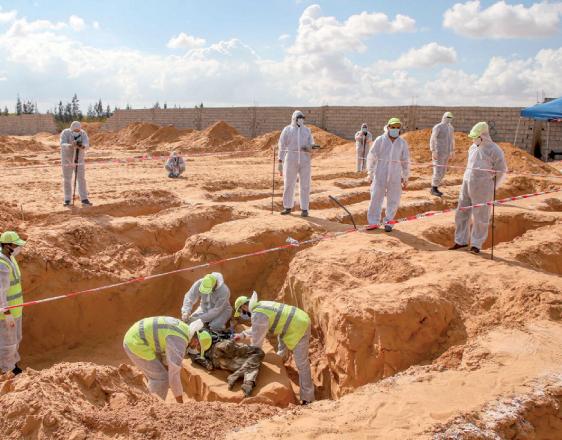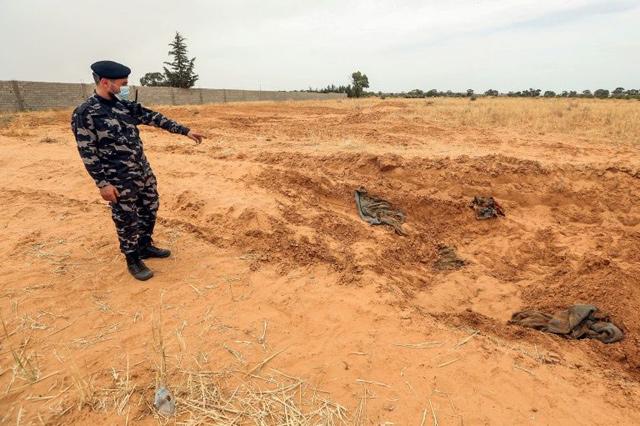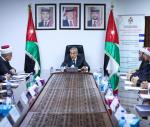You are here
Watchdog urges Libya's GNA to identify Tarhuna missing
By AFP - Jan 08,2021 - Last updated at Jan 08,2021

An aerial view shows Libyan experts exhuming human remains from mass graves in Tarhuna, southeast of the capital Tripoli, in this file photo taken on October 28, 2020 (AFP photo)
TRIPOLI — Human Rights Watch(HRW) appealed on Thursday to Libya's internationally recognised government to launch an investigation aimed at identifying hundreds of people reported missing in a western town where mass graves have been unearthed.
The United Nations voiced "horror" after the discovery of the mass graves around Tarhuna, about 80 kilometres from the capital Tripoli, in June last year.
The discovery came the day after the withdrawal of forces loyal to eastern Libyan strongman Khalifa Haftar, who used Tarhuna as the main staging point for his ultimately abortive attempt to seize the capital in a military offensive launched in April 2019.
The New York-based HRW says hundreds of people have been abducted or reported missing between 2014 and 2020 in Tarhuna, which is now under the control of pro-GNA forces.
"At least 338 residents of Tarhuna were reported missing after the local Al Kani militia, known as Kaniyat, took control of the town in 2015," HRW said, citing the authority charged with carrying out exhumations.
"Residents reported that the militia often abducted, detained, tortured, killed, and disappeared people who opposed them or who were suspected of doing so," added the rights watchdog.
It called on the GNA to "investigate what happened to the missing residents", recalling that since the first macabre discovery, 120 bodies have been exhumed from 27 mass graves, including women and children.
Human Rights Watch also appealed to foreign governments and the UN to "provide forensics experts and conduct DNA testing to help with the GNA's gravesite investigations".
The Libyan authorities told HRW that they have not yet identified the bodies. They said the main reason behind the delay was the lack of funds and that some staff needed additional training.
"The authorities should act on the grim discovery of mass graves by taking proper steps to identify the bodies and bringing those responsible for abuses to justice," said Hanan Salah, senior Libya researcher at HRW.
The United States blacklisted the Al Kani militia in November, saying it was "responsible for the murder of civilians recently discovered in numerous mass graves in Tarhuna".
The sanctions sought to freeze any property of those named under US jurisdiction and to block their access to the world trade and banking system.
Libya has been wracked by violence since a NATO-backed uprising toppled and killed longtime dictator Muammar Qadhafi in 2011.
Related Articles
TARHUNA, Libya — "They spared no child, no woman, no old man," said Mohamed Amer, mourning those murdered during a reign of terror by six br
TARHUNA, Libya — Seventeen bodies have been unearthed in newly found mass graves in western Libya’s Tarhuna region, taking the total exhumed
TRIPOLI — Human Rights Watch (HRW) called on Libyan military strongman Khalifa Haftar on Tuesday to investigate alleged war crimes by his fi

















